
Lesbian, gay, bisexual, transgender and queer (LGBTQ) movements are social movements that advocate for LGBTQ people in society. Although there is not a primary or an overarching central organization that represents all LGBTQ people and their interests, numerous LGBTQ rights organizations are active worldwide. The first organization to promote LGBTQ rights was the Scientific-Humanitarian Committee, founded in 1897 in Berlin.

Peter Gary Tatchell is an Australian-born British human rights campaigner, best known for his work with LGBT social movements.

OutRage! was a British political group focused on lesbian and gay rights. Founded in 1990, the organisation ran for 21 years until 2011. It described itself as "a broad based group of queers committed to radical, non-violent direct action and civil disobedience" and was formed to advocate that lesbian, gay and bisexual people have the same rights as heterosexual people, to end homophobia and to affirm the right of queer people to their "sexual freedom, choice and self-determination".

Lesbian, gay, bisexual, transgender, and queer (LGBTQ) rights in Germany rank among the highest in the world; having evolved significantly over the course of the last decades. During the 1920s and the early 1930s, lesbian and gay people in Berlin were generally tolerated by society and many bars and clubs specifically pertaining to gay men were opened. Although same-sex sexual activity between men was already made illegal under Paragraph 175 by the German Empire in 1871, Nazi Germany extended these laws during World War II, which resulted in the persecution and deaths of thousands of homosexual citizens. Same-sex sexual activity between men was decriminalized in both East and West Germany in 1968 and 1969, respectively.

The rights of lesbian, gay, bisexual, transgender, and queer (LGBTQ) people in the United Kingdom have developed significantly over time. Today, lesbian, gay and bisexual rights are considered to be advanced by international standards, while transgender, gender-nonconforming and non-binary people face some of the highest levels of discrimination of any modernised country.

New Zealand lesbian, gay, bisexual, transgender, and queer (LGBTQ) rights are some of the most extensive in the world. The protection of LGBT rights is advanced, relative to other countries in Oceania, and among the most liberal in the world, with the country being the first in the region to legalise same-sex marriage.

Lesbian, gay, bisexual, transgender, and queer (LGBTQ) rights in Australia rank among the highest in the world; having significantly advanced over the latter half of the 20th century and early 21st century. Opinion polls and the Australian Marriage Law Postal Survey indicate widespread popular support for same-sex marriage within the nation. Australia in 2018, in fact was the last of the Five Eyes set of countries - that consisted of namely Canada (2005), New Zealand (2013), United Kingdom (2014) and the United States (2015) to legalize same-sex marriage. A 2013 Pew Research poll found that 79% of Australians agreed that homosexuality should be accepted by society, making it the fifth-most supportive country surveyed in the world. With its long history of LGBTQ activism and annual Gay and Lesbian Mardi Gras festival, Sydney has been named one of the most gay-friendly cities in the world.

Lesbian, gay, bisexual, and transgender (LGBT) rights in Cyprus have evolved in recent years, but LGBTQ people still face legal challenges not experienced by non-LGBT residents. Both male and female expressions of same-sex sexual activity were decriminalised in 1998, and civil unions which grant several of the rights and benefits of marriage have been legal since December 2015. Conversion therapy was banned in Cyprus in May 2023. However, adoption rights in Cyprus are reserved for heterosexual couples only.

Lesbian, gay, bisexual, transgender, and queer (LGBTQ) rights in Switzerland are some of the most progressive by world standards. Social attitudes and the legal situation have liberalised at an increasing pace since the 1940s, in parallel to the situation in Europe and the Western world more generally. Legislation providing for same-sex marriage, same-sex adoption, and IVF access was accepted by 64% of voters in a referendum on 26 September 2021, and entered into force on 1 July 2022.

Lesbian, gay, bisexual, transgender, and queer (LGBTQ) rights in the British Crown dependency of the Isle of Man have evolved substantially since the early 2000s. Private and consensual acts of male homosexuality on the island were decriminalised in 1992. LGBTQ rights have been extended and recognised in law since then, such as an equal age of consent (2006), employment protection from discrimination (2006), gender identity recognition (2009), the right to enter into a civil partnership (2011), the right to adopt children (2011) and the right to enter into a civil marriage (2016).

Lesbian, gay, bisexual, transgender, and queer (LGBTQ) people in Northern Ireland enjoy most of the same rights as non-LGBTQ people. However, the advancement of LGBTQ rights has traditionally been slower than the rest of the United Kingdom, with the region having lagged behind England, Scotland, and Wales. Northern Ireland was the last part of the United Kingdom where same-sex sexual activity was decriminalised, the last to liberalise blood donation policy for men who have sex with men and, after intervention by the Parliament of the United Kingdom, the last to allow same-sex marriage. Compared to the neighbouring Republic of Ireland, all major LGBT rights milestones had been reached earlier in Northern Ireland, with the exception of same-sex marriage. Homosexuality was decriminalised in Northern Ireland a decade earlier and civil partnerships were introduced six years earlier.
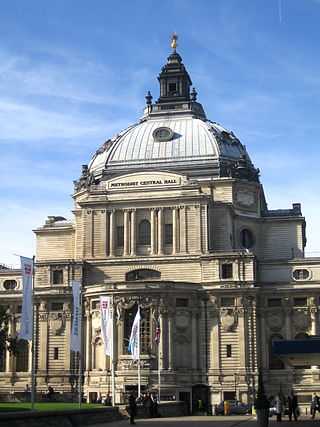
On 9 September 1971 the UK Gay Liberation Front (GLF) undertook an action to disrupt the launch of the Church-based morality campaign Nationwide Festival of Light at the Methodist Central Hall, Westminster. A number of well-known British figures were involved in the disrupted rally, and the action involved the use of "radical drag" drawing on the Stonewall riots and subsequent GLF actions in the US. Peter Tatchell, gay human rights campaigner, was involved in the action which was one of a series which influenced the development of gay activism in the UK, received media attention at the time, and is still discussed by some of those involved.
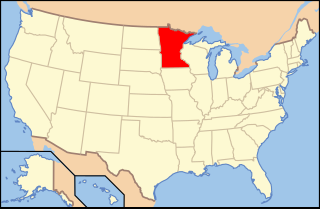
Lesbian, gay, bisexual, transgender, and queer (LGBTQ) people in the U.S. state of Minnesota have the same legal rights as non-LGBTQ people. Minnesota became the first U.S. state to outlaw discrimination based on sexual orientation and gender identity in 1993, protecting LGBTQ people from discrimination in the fields of employment, housing, and public accommodations. In 2013, the state legalized same-sex marriage, after a bill allowing such marriages was passed by the Minnesota Legislature and subsequently signed into law by Governor Mark Dayton. This followed a 2012 ballot measure in which voters rejected constitutionally banning same-sex marriage.

Lesbian, gay, bisexual, transgender and queer (LGBTQ) people in the Australian state of New South Wales have the same rights and responsibilities as heterosexual individuals and couples. LGBTQ rights in New South Wales enjoy bipartisan support.
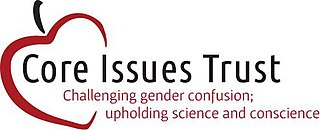
The Core Issues Trust is a British Christian fundamentalist organisation that provides conversion therapy for LGBT people.

Equality Illinois (EI) was founded in 1991 to work towards building a better Illinois by advancing equal treatment and social justice through education, advocacy, and protection of the rights of the LGBTQ community.
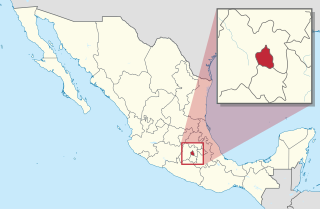
LGBT rights in Mexico City are considerably more progressive than the rest of Mexico. On March 4, 2010, it became the first area in Mexico to issue same-sex marriage licenses to same-sex couples.
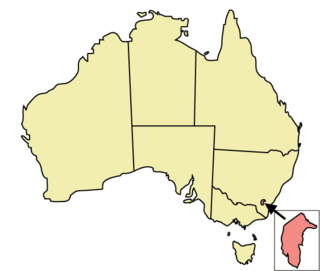
The Australian Capital Territory (ACT) is one of Australia's leading jurisdictions with respect to the rights of lesbian, gay, bisexual, and transgender (LGBT) people. The ACT has made a number of reforms to territory law designed to prevent discrimination of LGBTQ people; it was the only state or territory jurisdiction in Australia to pass a law for same-sex marriage, which was later overturned by the High Court of Australia. The Australian Capital Territory, Victoria, Queensland and both South Australia and New South Wales representing a population of 85% on Australia – explicitly ban conversion therapy practices within their jurisdictions by recent legislation enacted. The ACT's laws also apply to the smaller Jervis Bay Territory.
This is a list of notable events in the history of LGBTQ rights that took place in the year 2020.
George Broadhead (1933–2021) was a humanist activist and gay rights campaigner. He was co-founder, in 1979, of the Gay Humanist Group and later of the Pink Triangle Trust, two of the longest established gay and lesbian groups in the UK.


















